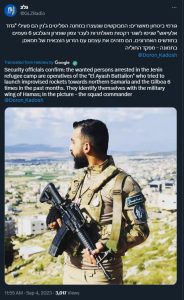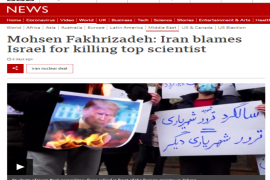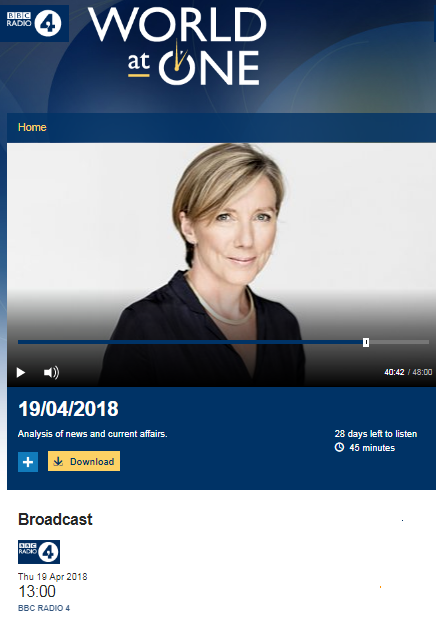The BBC’s Jerusalem bureau has to date displayed little, if any, interest in the topic of the repeated efforts by a Hamas group in Jenin to attack nearby Israeli communities with rockets in recent months.
On September 4th – four months after those intermittent attacks began – the Israeli security forces took the predictable step of launching a related arrest operation in Jenin.
“In a joint statement, the Israel Defense Forces, Shin Bet security agency, and Border Police said troops entered the [Jenin refugee] camp and nabbed Abdullah Hassan Mohammed Sobeh, Ward Sharim, and Mus’ab Ja’aydah.
Security officials said Sobeh, a senior member of Hamas from the West Bank town of Burqin — close to Jenin — had been wanted by Israel for months for his involvement in a string of attacks.
Sobeh was accused of being involved in shootings, pipe bomb attacks, vehicle-borne explosive device attacks, and the firing of improvised rockets at West Bank settlements and Israeli towns from the Jenin area.
A group calling itself Al-Ayyash Battalion — apparently named for a notorious Hamas bombmaker killed by Israel — has claimed to have launched several rockets at settlements and towns in northern Israel in recent months, publishing footage of the mostly unsuccessful attempts.
Military sources described Sobeh as one of the better-known names on the defense establishment’s wanted list, with the army having long attempted to apprehend him, and said he was behind significant attacks such as rocket fire in recent months and a botched car bomb near the settlement of Mevo Dotan last year.
The other two suspects, Sharim and Ja’aydah, were involved in shooting attacks in the West Bank and planning further attacks, the statement said.”
That counter-terrorism operation did not receive any coverage on the BBC News website but listeners to both BBC Radio 4 and BBC World Service radio on September 4th did hear reports on that story from the BBC Jerusalem bureau’s Tom Bateman.
The first of those items was aired in a news bulletin on BBC Radio 4’s ‘World at One’ (from 04:22 here). [emphasis in italics in the original, emphasis in bold added]
The item was introduced with descriptions of counter-terrorism operations as ‘raids’ and ‘assaults’ and portrayal of armed terrorists merely as “Palestinians”, along with an opaque claim that a previous operation was responsible for “triggering widespread Palestinian unrest”.
Newsreader: “At least six Palestinians have been wounded during an Israeli military raid on the city of Jenin in the occupied West Bank. In July Israeli forces carried out an assault on the refugee camp in Jenin, triggering widespread Palestinian unrest. From Jerusalem, here’s our Middle East correspondent Tom Bateman.”
As ever – and despite the UK government’s designation of Hamas as a terrorist organisation in its entirety – Bateman promoted the notion of separate wings to the organisation he euphemistically described as a ‘militant group’.
Bateman: “This is the first known raid to involve undercover Israeli troops going into Jenin since the major assault in July. Local sources have told the BBC they entered in Palestinian cars and targeted a building used by al Qassam Brigades – the armed wing of the Palestinian militant group Hamas. Unconfirmed Israeli reports say a so-called suicide drone – or a small explosive drone – was used against militants who were firing at the troops, injuring several of the militants, while Palestinian reports claim gunmen shot the drone down. With violence continuing to surge in the occupied West Bank, the Israeli army says it arrested three Hamas operatives. It’s thought they were wanted for attempted shooting attacks and trying to fire home-made rockets towards Israeli settlements.”
Those attempted rocket attacks have targeted two communities: Shaked, which is located in northern Samaria, and Ram On – a moshav founded in 1961 which is located inside the ‘green line’ in the Gilboa regional council area and is not a “settlement”.
The afternoon edition of the BBC World Service radio programme ‘Newshour’ included an item (from 11:12 here) which was introduced by presenter Rebecca Kesby with a similarly unclear claim of “widespread unrest”.
Kesby: “And let’s just go to another piece of news that’s been breaking in the past few hours and that’s reports that there’ve been clashes between Israeli security forces and armed Palestinians in the occupied West bank city of Jenin. Ehm…of course there was that major raid in Jenin by Israeli forces back in July that sparked widespread unrest. Let’s get the latest with our correspondent Tom Bateman who’s in Jerusalem. Tom, what’s happening today?”
Bateman: “Well what we know is the Israelis went in – these were undercover special forces – into or close to Jenin refugee camp which was the site of that major Israeli military assault back in July. This one of the first raids of its kind – not the very first time they’ve gone in to carry out detentions since then but certainly the first to use undercover forces like this – and significantly, what appears to have happened is the targeting by the Israelis of a building close to Jenin refugee camp which was a hold up – hold out – for the al Qassam Brigades – the armed wing of Hamas, the Palestinian militant group. It appears the cover was blown of these Israeli forces at some point. Militants began firing at them. There was then a gun battle in that part of Jenin. Now what Israeli media reports have suggested is that there was a so-called suicide drone, or an explosive drone, used and this led to the wounding of several of those militants. The militant group al Qassam Brigades itself claims that it shot down the drone but I think what we’re seeing is an increasing use of battlefield weapons in what is now…you know, what is an urban and very packed part of the occupied West Bank and this happening essentially with increasing frequency.”
Notably, in that report Bateman had nothing to tell the BBC’s worldwide audiences about the use of “battlefield weapons” in the form of rockets that were the context to this arrest operation.
The September 4th edition of BBC Radio 4’s Six O’Clock News included another report from Bateman which the webpage states will be “available for over a year” (from 19:47 here) which included the same motifs in its introduction.
Newsreader: “At least six Palestinians have been wounded during an Israeli military raid on the city of Jenin in the occupied West Bank. In July Israeli forces carried out an assault on the refugee camp there, triggering widespread Palestinian unrest. From Jerusalem, here’s our Middle East correspondent Tom Bateman.”
Bateman: “[sound of gunfire] Gunfire and a wailing siren signaled the return of violence to Jenin’s streets. Israel’s military raids into the city had slowed significantly since its assault in July. But this morning the army, first with undercover forces disguised in a Palestinian car, targeted a hold out of al Qassam Brigades – the armed wing of the militant group Hamas. The Israelis say the group has been behind attempts to fire makeshift rockets at Jewish settlements. The raid sparked firefights with unconfirmed reports that Israel used a so-called suicide drone to hit some militants, wounding at least two. This was already the West Bank’s bloodiest year in two decades, with Israeli army raids, settler violence and Palestinian armed attacks all growing while the military occupation becomes further entrenched and there is a total absence of any political horizons.”
Once again Bateman failed to report that some of that attempted rocket fire targeted a moshav which is not a “settlement” as the BBC defines that term. He also refrained from clarifying that the “growing” number of counter-terrorism operations is the result of the rise in Palestinian terror attacks rather than something that just happens to have taken place at the same time.
Readers may recall that Bateman promoted similar talking points in a report published on the BBC News website on August 22nd:
“The West Bank is in the grip of the worst violence in two decades amid the absence of any political solution to the conflict, while Israel’s military occupation is now into its 57th year.”
As was noted here at the time:
“The framing of the rise in violence that began over two years ago as being the outcome of “the absence of any political solution to the conflict” is of course by no means novel in BBC reporting. However, in order to promote that narrative BBC journalists have to avoid the inconvenient fact that neither Hamas nor the Palestinian Islamic Jihad – two of the main proponents of the current violence in Judea & Samaria – are remotely interested in any “political solution” because their openly-stated aim is to wipe Israel off the map.”
Clearly the topic of Hamas’ ongoing efforts to terrorise residents of northern Israel with rocket attacks – as it has been doing in the south for over two decades – are of significantly less interest to Tom Bateman than the promotion of vacuous messaging about a “political solution”.
Related Articles:
BBC NEWS AGAIN AVOIDS INCONVENIENT FACTS ABOUT HAMAS AND THE PIJ





